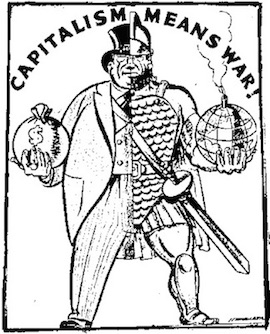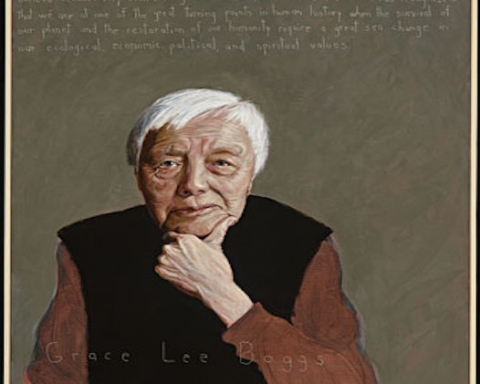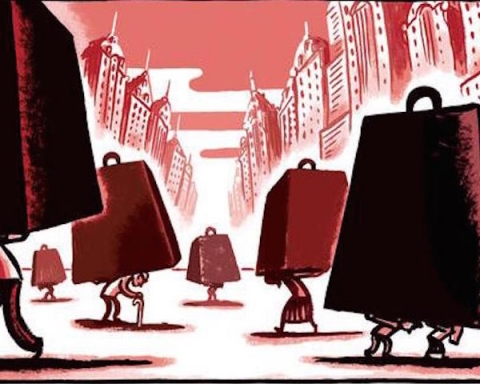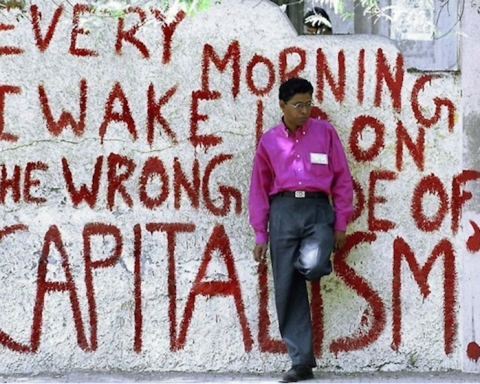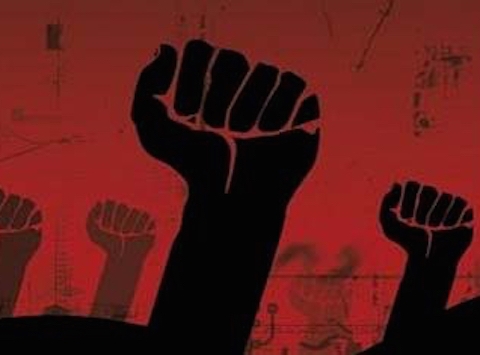Here at the Workshop we have believed for some time now that regardless of who won the U.S. presidential elections the overlapping interests and ideological investments that permeate the political spectrum all pointed to the increasing likelihood of war with Iran (and by proxy with Russia). As the U.S. war-machine continues down this path (a path that we have been walking well before the arrival of Donald Trump, see in particular Hersh’s article below), the global war that looms on the horizon can only be understood in the context of the larger contradictions of contemporary capitalism and, more specifically, the violence associated with the turn toward financialization as well as with the structural crisis of capitalist accumulation that has made financialization necessary. This roundup offers the following articles to help make sense of what might in fact be driving this creep toward global war and how we might begin to think and build our way out of this madness. — The Workshop for Intercommunal Study
To Our Enemies ( A Nuestros Enemigos – incluído en Español) by Maurizio Lazzarato and Éric Alliez
“‘It’s like being in a war,’ was heard in Athens during the weekend of July 11–12, 2015… The statement “It’s like being in a war’ should be immediately corrected: it is a war. The reversibility of war and economy is at the very basis of capitalism. And it has been a long time since Carl Schmitt revealed the ‘pacifist’ hypocrisy of neoliberalism by reestablishing the continuity between economy and war: the economy pursues the objectives of war through other means…”
How Will Capitalism End? (¿Cómo terminará el capitalismo? – incluído en Español) by Wolfgang Streeck
“The capitalist system is at present stricken with at least five worsening disorders for which no cure is at hand: declining growth, oligarchy, starvation of the public sphere, corruption and international anarchy. What is to be expected, on the basis of capitalism’s recent historical record, is a long and painful period of cumulative decay: of intensifying frictions, of fragility and uncertainty, and of a steady succession of ‘normal accidents’—not necessarily but quite possibly on the scale of the global breakdown of the 1930s.”
Capitalism’s Crisis of Care by Sarah Leonard and Nancy Fraser
“The idea that we could somehow bring back manufacturing, that’s what’s utopian—again, in the bad sense. Unlike the idea that you could build a society that assumes every adult is a person with primary care responsibilities, community engagements, and social commitments. That’s not utopian. It’s a vision based on what human life is really like.”
Map Shows Where President Barack Obama Dropped his 20,000 Bombs by Harriet Agerholm
“…as the world gears up for a seemingly more violent four years, it is worth reflecting on President Obama’s tenure. According to newly released figures, President Obama had already upped the number of bombs on foreign countries. US forces dropped over 3,000 more bombs in 2016 than 2015, taking the grand total of strikes for the year to at least 26,171.”
Trump Attack on Syria a Deadly Political Game and Reflection of Deep Systemic Crisis by Gerald Horne and Paul Jay
“…Unfortunately, we’re not finished, I’m afraid. As noted, North Korea is certainly in the crosshairs. The problem there, of course, is that North Korea is rapidly developing the capability to have missiles that it can reach Hawaii at least, if not the west coast of the United States of America. And likewise, I think that Washington may be under-estimating the ability of Iran, to organize and resist an attack. That if launched, could open the gates of hell.”
The Redirection by Seymour M. Hersh
“In Iraq, most of the insurgent violence directed at the American military has come from Sunni forces, and not from Shiites. But, from the Administration’s perspective, the most profound—and unintended—strategic consequence of the Iraq war [was] the empowerment of Iran.”

